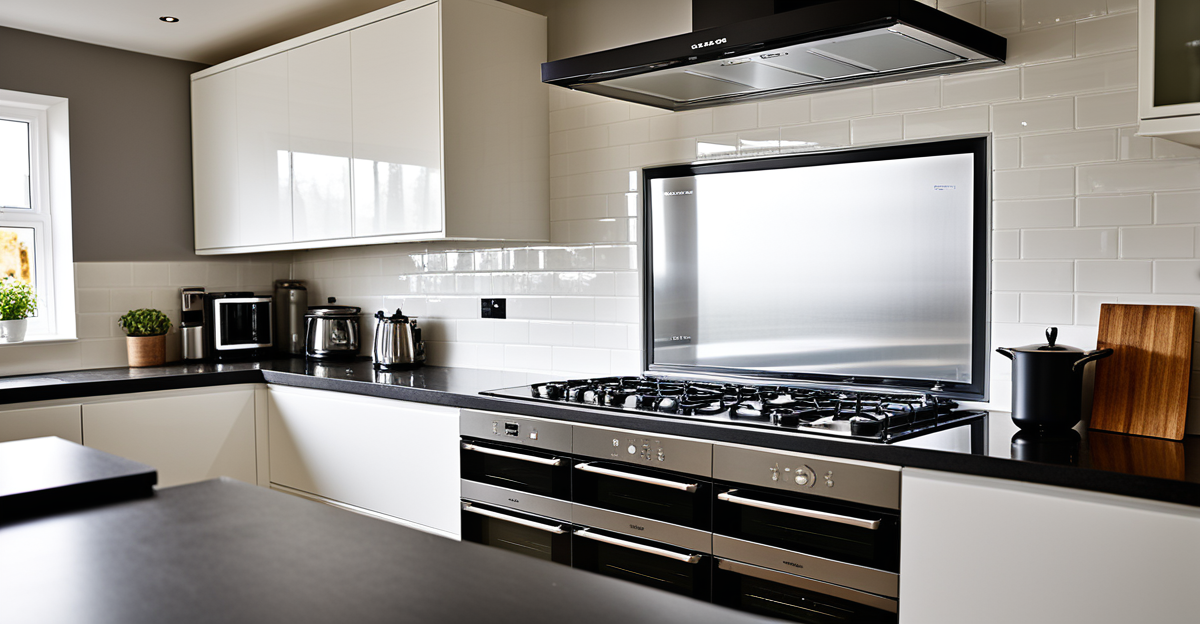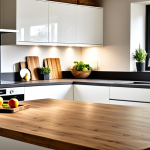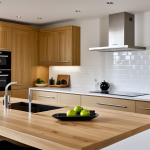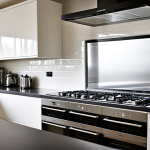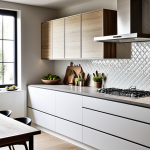Overview of Technology’s Role in UK Kitchens
Technology in UK kitchens is rapidly reshaping how British households approach cooking and daily routines. The shift towards smart living in British households reflects a broader embrace of kitchen innovation within UK smart homes. This evolution is driven by major advancements, including connected devices that simplify tasks, enhance efficiency, and add convenience.
Consumers are increasingly drawn to technology in UK kitchens, seeking solutions that make meal preparation easier and more enjoyable. Smart appliances and integrated systems allow homeowners to control kitchen functions remotely, adjust settings via mobile devices, and access personalized cooking guidance. This interplay of technology and design fosters a home environment that supports both modern living and culinary excellence.
In parallel : How is the trend of DIY kitchen renovations growing in the UK?
The growing consumer interest in kitchen tech is also motivating manufacturers to develop new features, such as touchless operation and AI-assisted cooking tools. These innovations highlight the role of technology in UK kitchens as a catalyst for transforming traditional kitchen spaces into responsive, intelligent hubs. Overall, the rise of smart kitchen technology is redefining how UK households experience food preparation, reflecting an exciting chapter in kitchen innovation.
Leading Smart Kitchen Appliances and Gadgets
Discovering how smart kitchen appliances UK shape modern kitchens is key to understanding current UK kitchen trends. Devices such as smart fridges, ovens, and dishwashers stand out for their connectivity and functionality. For example, a smart fridge can monitor food inventory and suggest recipes, elevating convenience in everyday cooking.
In the same genre : How Are Recent Developments Impacting British Culinary Traditions?
Central to these innovations are connected kitchen devices that integrate seamlessly with voice assistants like Alexa or Google Assistant. This allows users to control appliances hands-free, from starting an oven preheat to adjusting lighting. Automated lighting solutions not only enhance ambiance but also boost energy efficiency by activating based on room use.
Integration with UK smart homes is evident as many smart appliances link with mobile devices, enabling remote control. Imagine adjusting oven temperature on your way home or checking dishwasher status from your phone. This interconnectivity brings unprecedented flexibility into the kitchen space while aligning with broader smart home ecosystems.
These advancements reflect a trend where kitchen technology evolves beyond standalone tools into an interconnected system. Smart kitchen appliances UK thus play a pivotal role in fostering greater convenience, efficiency, and overall user-friendly experiences.
Artificial Intelligence and Automation in Kitchen Design
Artificial Intelligence (AI) in kitchens is revolutionising how British households manage cooking and meal preparation. AI-driven systems assist with meal planning by analysing dietary preferences and suggesting recipes that fit the user’s nutritional needs. These intelligent kitchen systems track inventory automatically, alerting homeowners when staples run low or are about to expire, reducing food waste.
Automated cooking UK innovations include smart appliances that adjust cooking times and temperatures based on real-time sensor data. For instance, ovens with AI can recognise food types and recommend optimal cooking settings, ensuring better results without manual intervention. Such technology removes guesswork, making meal preparation more accessible and precise.
Smart sensors embedded in kitchen gadgets enhance safety by detecting hazards like smoke or gas leaks. They also contribute to energy efficiency by optimising appliance use, switching off devices when not needed. Together, these automated elements embody kitchen innovation, integrating AI to create responsive, adaptive environments that improve convenience and sustainability in UK smart homes.
Impact on Convenience, Efficiency, and Sustainability
Small text
Technology in UK kitchens significantly boosts kitchen efficiency by introducing features that save time and simplify tasks. Remote control capabilities allow users to operate appliances like ovens or dishwashers from their smartphones, enabling multitasking and better schedule management. These time-saving features enhance everyday convenience, making meal preparation less stressful and more flexible.
Sustainable kitchens UK benefit from technologies designed to manage energy consumption intelligently. Automated systems monitor usage and switch off devices when idle, reducing unnecessary power drains. Eco-friendly innovations also include appliances that optimise water and electricity use, reflecting growing awareness of environmental impact.
Reducing food waste is another vital focus. Intelligent kitchen technology tracks inventory and expiry dates, alerting users to items nearing their ‘use by’ dates. This prompts timely consumption or meal planning adjustments, reinforcing food sustainability efforts. By optimising grocery use, households save money and lower their ecological footprint.
Together, kitchen convenience technology and sustainable strategies enable UK smart homes to create more efficient, environmentally responsible cooking environments while maintaining ease of use and control for occupants.
Overview of Technology’s Role in UK Kitchens
Technology in UK kitchens is driving a significant transformation, blending innovation with daily living. British households are increasingly adopting smart solutions that integrate seamlessly into UK smart homes, creating connected spaces that simplify cooking and household management. This shift towards smart living is propelled by advances in sensor technology, wireless connectivity, and user interfaces designed for intuitive control.
Kitchen innovation is not only about adding gadgets but reimagining how kitchens operate. Features such as remote monitoring, automated adjustments, and personalized recipe assistance respond directly to consumer demands for convenience and efficiency. The rising popularity of these technologies reflects a growing appetite for modern solutions that reduce effort without sacrificing culinary quality.
Consumers want tools that adapt to their lifestyles, offering more than functionality—they seek experiences that enhance everyday routines. From smart appliances that communicate with each other to integrated apps providing real-time updates, technology in UK kitchens redefines the heart of the home into a responsive, intelligent environment, fostering better management of resources and elevated cooking experiences.

